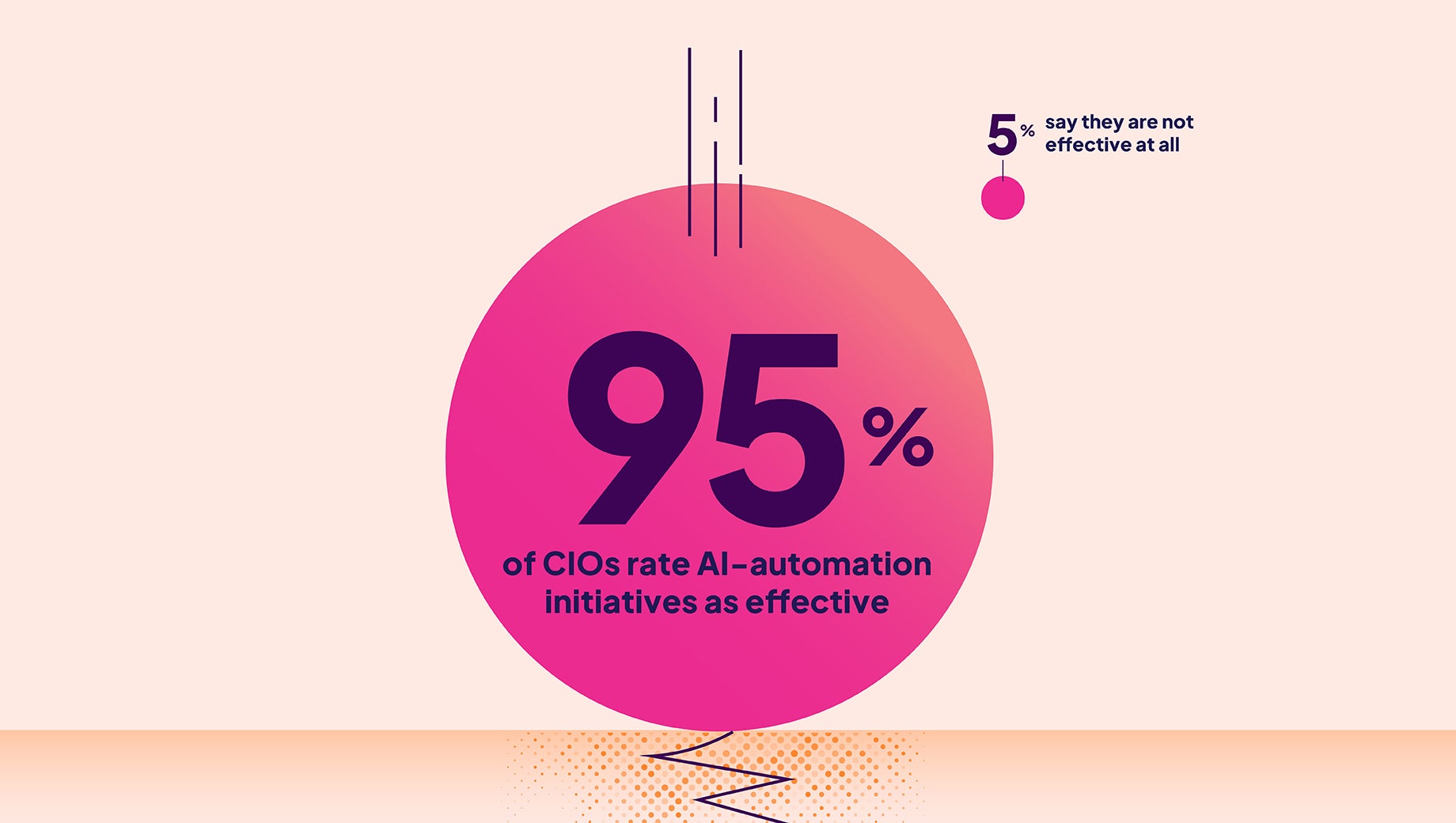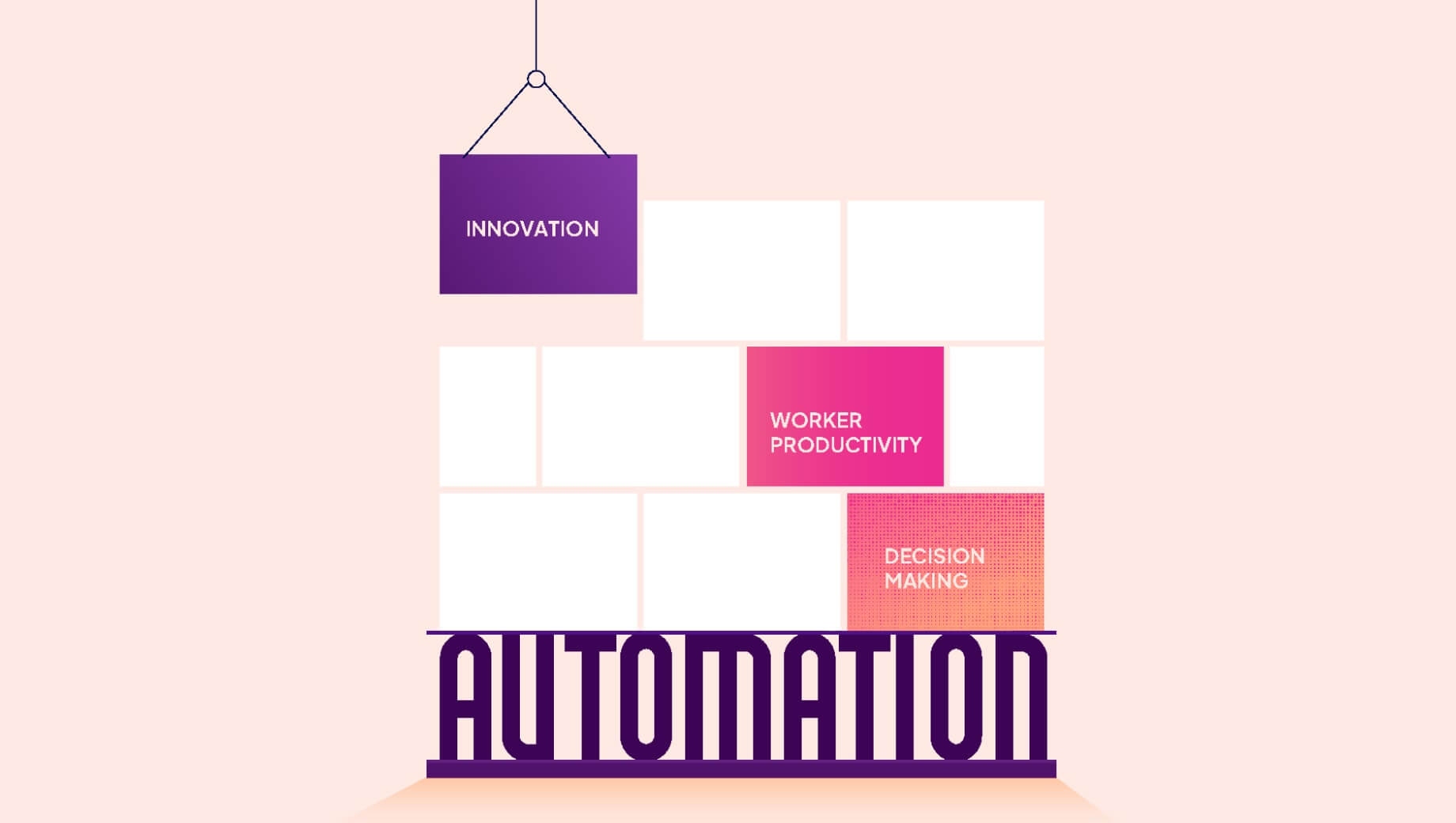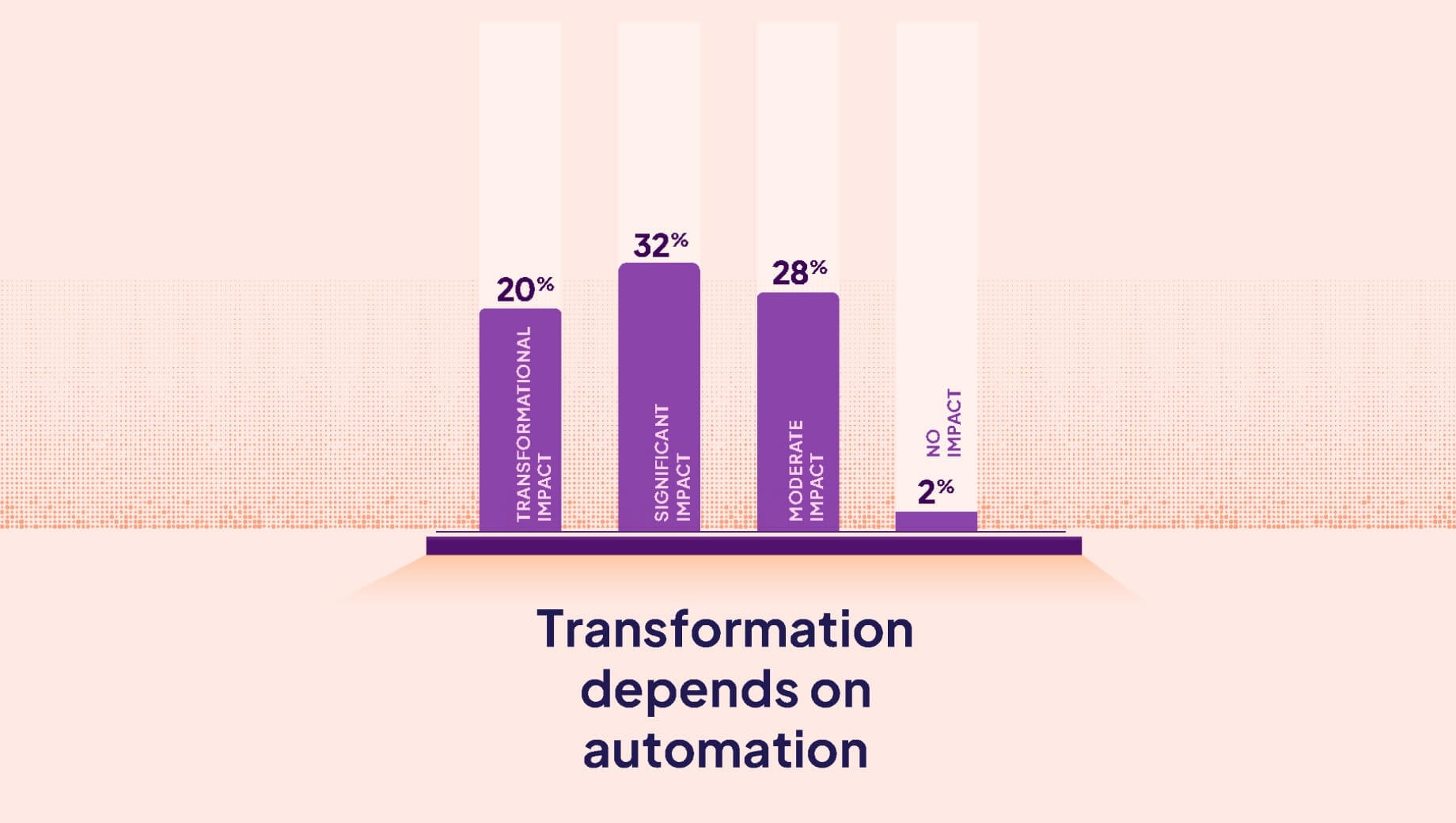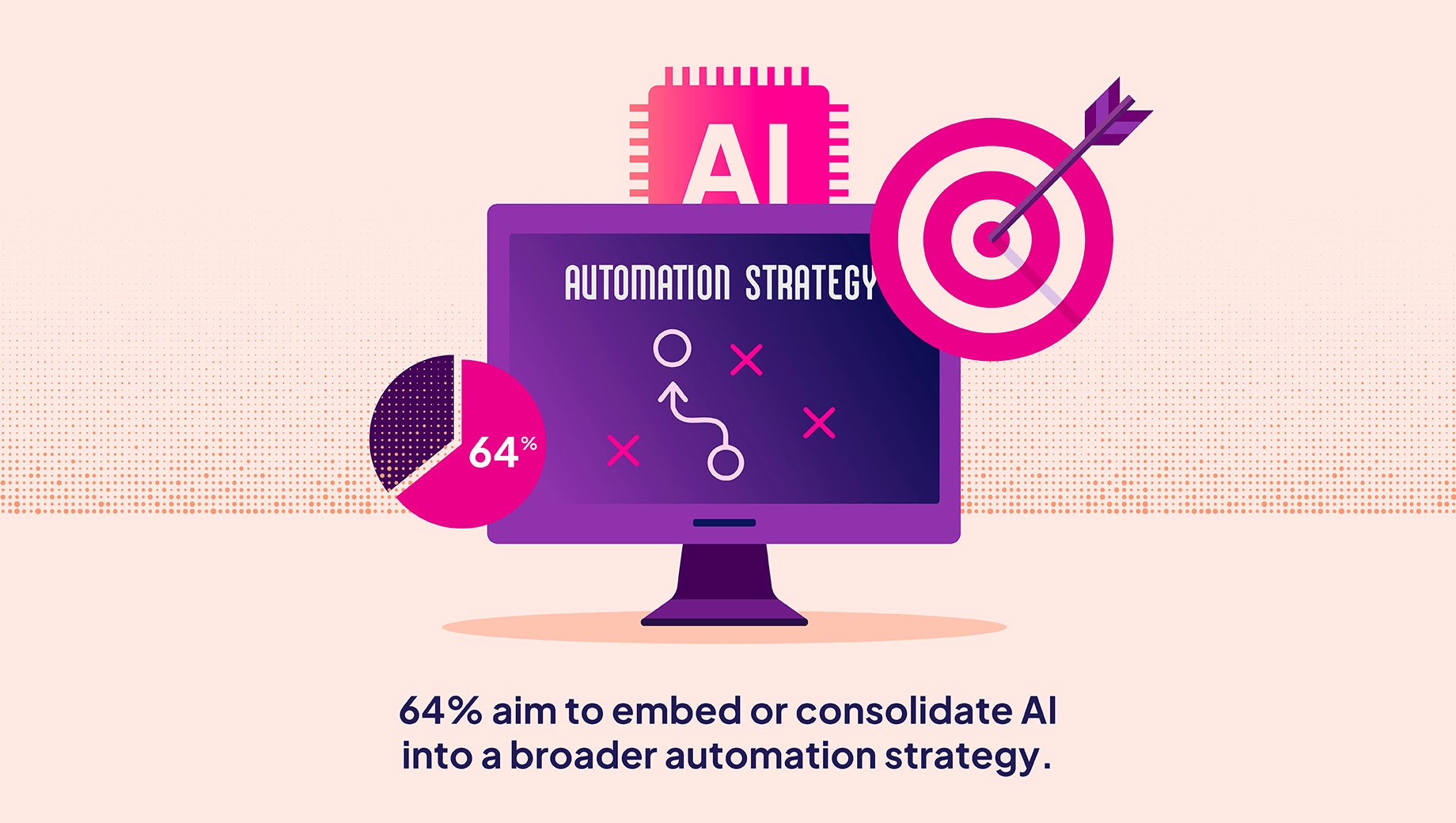AI investments are skyrocketing — yet most organizations aren’t seeing the returns they expect. MIT’s State of AI in Business 2025 found that 95% of generative AI pilots generate no measurable value.
Our latest survey of CIOs and CFOs across the US, UK, Canada, Saudi Arabia, Australia, and New Zealand reveals the big caveat to that statistic: disappointing AI results apply unless organizations start with automation.

AI and automation increase efficiency, agility, and outcomes
When paired together, automation and AI deliver stronger results than either technology alone. An overwhelming 95% of CIOs and CFOs say that their combined AI and automation initiatives as effective, with more than half calling them very effective.

By comparison, AI alone provides operational benefits, but ROI lags. Only 12% of leaders say AI alone delivers the strongest results, while 21% credit automation alone — and 63% say the combination drives the greatest business value.
“By combining automation with AI, we reduced administrative workload by 5–7 hours per employee per week and cut compliance reporting time by 30%. Productivity rose 12%, while accuracy improved 15%.” — EMEA respondent
Regional Spotlights
When asked which approach delivers the strongest business results, leaders around the globe agree: AI and automation together is the answer.
- Australia: 55%
- Canada: 71%
- New Zealand: 74%
- Saudi Arabia: 54%
- UK: 74%
- USA: 59%
Automation is a prerequisite for scalable AI

Globally, 84% of leaders agree automation must come first before AI. That conviction is especially strong among CFOs, who often see governance and compliance as their top barriers. Automation provides standardized processes, reliable data, and governance guardrails that make AI safe to scale.
Regional Spotlights
- US & Canada: 95% of Canadian leaders say automation must come first, compared to 76% in the US.
- UK: 82% agree automation is foundational, but half say compliance, budget, and skills shortages stall progress.
- ANZ: 84% of Australian and 79% of New Zealand leaders agree automation is the prerequisite.
- Saudi Arabia: A strong majority of leaders agree automation must precede AI, citing standardized processes and clean data foundations as critical reasons.
Scaling requires strong people, processes, and leadership

The divide between “significant” and “transformational” AI results often comes down to automation maturity: organizations with a strong automation base are twice as likely to report transformational outcomes.
CFOs and CIOs also see the challenges differently:
- CIOs point to talent shortages and data access issues.
- CFOs emphasize governance and compliance hurdles.
Regional Spotlights
- US: 26% cite skills gaps as the top barrier.
- Canada: Nearly a quarter call executive buy-in the most critical factor.
- UK: Half say governance, budgets, and skills shortages block scaling.
- ANZ: Australian leaders stress strong data foundations, while New Zealand leaders say broken processes are the issue.
- Saudi Arabia: Leaders point most often to governance/compliance challenges and skills gaps as the biggest barriers to scaling AI initiatives.
Governance: From burden to benefit
Governance has shifted from “burden” to “business advantage.” 40% of leaders now use compliance as a success metric, alongside ROI and productivity. Confidence in data foundations is also high: 93% of respondents are moderately or very confident their infrastructure can support AI at scale.
Regional Spotlights
- US & Canada: Governance matters more in Canada (19%) than the US (15%).
- UK: One in five emphasize governance tied to regulatory oversight.
- ANZ: Roughly one in five leaders in both Australia and New Zealand cite governance as a critical enabler.
- Saudi Arabia: Governance is increasingly seen as a success metric, with respondents emphasizing that embedding controls early is essential for safe scaling.
Across the US, UK, Canada, Saudi Arabia, and ANZ, the message is consistent: automation is the foundation, governance is the enabler, and scaling depends on people, processes, and leadership.

The future is Agentic Business Orchestration
The majority of leaders aren’t adding AI tools piecemeal. Instead, 64% are embedding or consolidating AI into broader automation strategies, creating unified platforms that orchestrate people, systems, and AI agents. And both CIOs and CFOs agree: regrets come when organizations underestimate this foundation.
With Agentic Business Orchestration, AI is no longer a bolt-on experiment. It becomes the brain, automation provides the muscle, and process orchestration ensures the two work together to drive measurable transformation.
Read the full global report to see how leaders across North America, Europe, the Middle East, and Australia/New Zealand are navigating AI and business process strategies.







